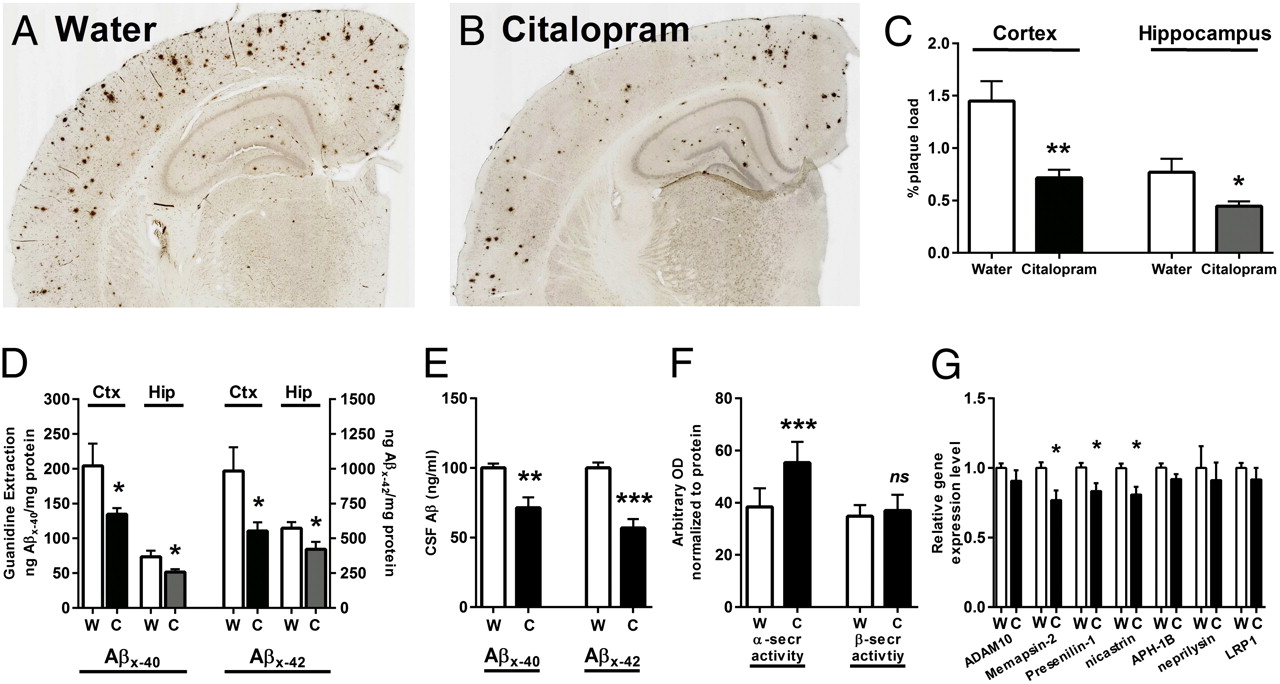In a potential breakthrough, a study published yesterday in Science Translational Medicine shows the SSRI Celexa driving down beta amyloid production in both mice and humans. The lead author is Professor Yvette Sheline from Washington University in St. Louis.
Citalopram was found to reduce the concentration of beta-amyloid in the cerebrospinal fluid in non-Alzheimer’s patients by 38%. Researchers see that as a clear sign that beta-amyloid protein in the brain also declines in those taking the antidepressant.
Studies tracking the progression of Alzheimer’s disease have suggested that years and even decades before symptoms appear, beta-amyloid proteins become more plentiful in the brain (and spill into cerebrospinal fluid where they are more easily measured). The proteins first aggregate in a soluble form, and over time turn into insoluble, hard plaques. Both can disrupt signals among brain cells, but as plaques proliferate, normal communication among neurons is completely broken, and dementia takes hold.
